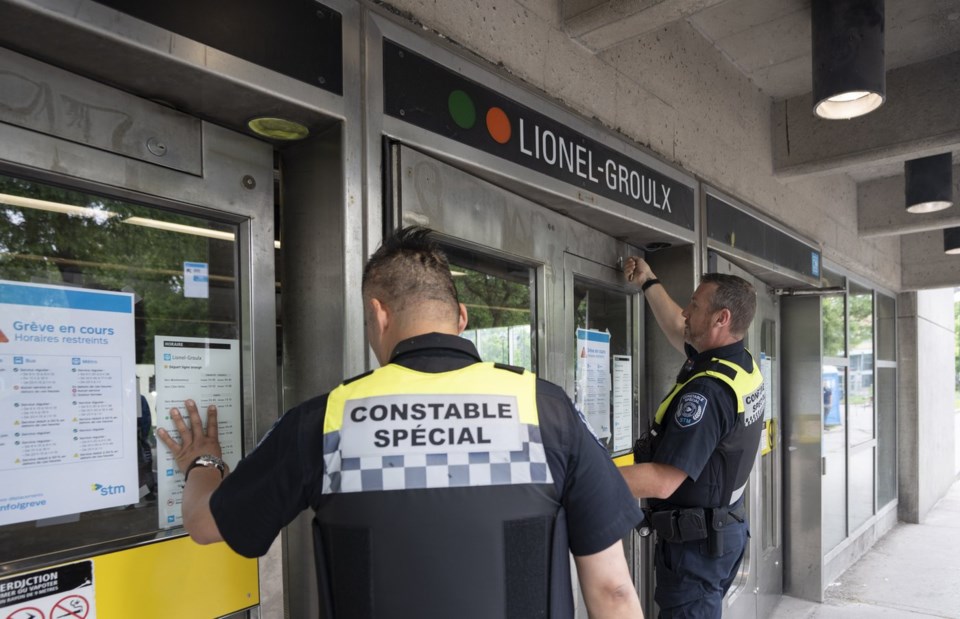MONTREAL — Quebec’s workplace health and safety board says special constables working in Montreal’s transit network are not equipped with the weapons needed to address potentially dangerous and violent passengers.
In a report delivered to the transit agency in June, the provincial board recommended an “urgent and more serious” reflection about the types of weapons the constables are allowed to carry. The report, obtained by The Canadian Press, was prompted by two union complaints. In both incidents, the union says the lives of the constables were placed in danger as they waited for backup.
The union representing the constables believes they should have access to stun guns and firearms. Currently, they have access to batons, handcuffs, and since 2024, pepper spray.
The Société de Transport de Montréal, the city's main transit agency, told The Canadian Press it has no plans to give constables more weapons, saying it instead prefers to favour de-escalation tactics.
Of the 58,349 interventions constables took part in last year, 487 required the use of force, the transit agency said, often resulting in people being handcuffed.
“Each intervention is also subject to feedback from the constable, in order to improve intervention processes and ensure their protection,” wrote Amélie Régis, a spokesperson for the network. “Extra de-escalation training is also available to the constables.”
The union says the agency needs to take the issue more seriously.
“The STM has always been against us using firearms and stun guns,” said Kevin Grenier, the president of the union representing the constables. “Clearly, we are not equipped to deal with people who have knives, air guns, or firearms."
Grenier said he understands if passengers might be uncomfortable at the prospect of constables carrying more dangerous, or even lethal, weapons. He reiterated that like police, they are also subject to provincial and internal codes of conduct.
“Because we have no firearms, people feel justified in assaulting and attacking us,” he added.
Since January, 85 constables have been injured in interventions, the union president said, in comparison to 123 over the course of last year.
The workplace safety board did not suggest specific types of weapons to give to constables.
It did however highlight a recent decision out of Quebec’s workplace tribunal, where an adjudicator explained how arming specialized road safety constables with guns could “help to rebalance the power relationship in favour of the traffic controller,” in the instance the person involved in the stop had a gun or was trying to assault the worker.
Quebec's workplace safety board also urged the agency to address lengthy response times for backup, whether it be for another transit constable or police. It also called on Quebec’s provincial police force to grant the constables access to its criminal database, a measure it noted was initially expected to be in place as of this April.
The provincial police force said it couldn't immediately respond to questions regarding when that access could be granted.
This report by The Canadian Press was first published Sept. 3, 2025.
Miriam Lafontaine, The Canadian Press



